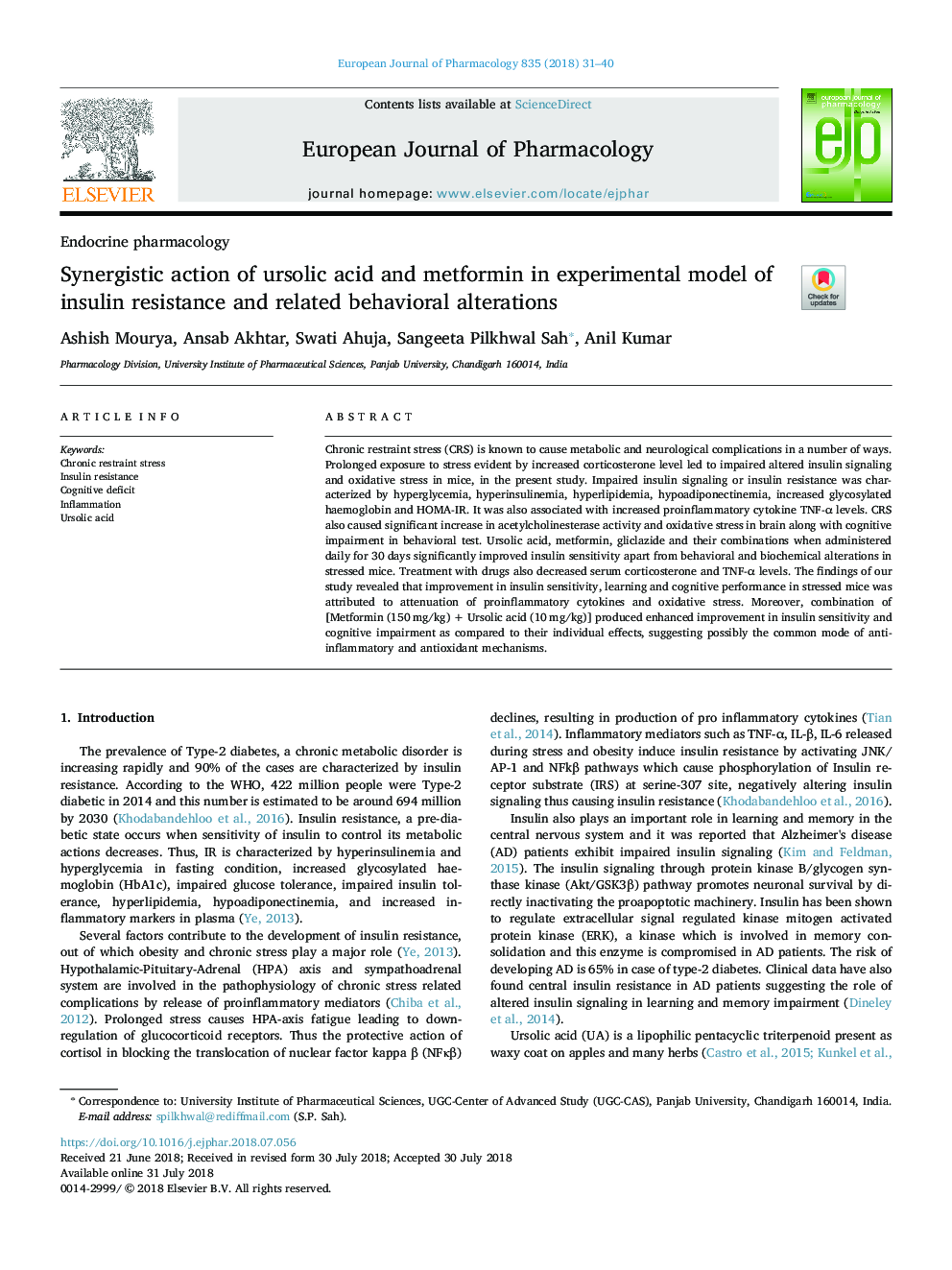| Article ID | Journal | Published Year | Pages | File Type |
|---|---|---|---|---|
| 8528877 | European Journal of Pharmacology | 2018 | 10 Pages |
Abstract
Chronic restraint stress (CRS) is known to cause metabolic and neurological complications in a number of ways. Prolonged exposure to stress evident by increased corticosterone level led to impaired altered insulin signaling and oxidative stress in mice, in the present study. Impaired insulin signaling or insulin resistance was characterized by hyperglycemia, hyperinsulinemia, hyperlipidemia, hypoadiponectinemia, increased glycosylated haemoglobin and HOMA-IR. It was also associated with increased proinflammatory cytokine TNF-α levels. CRS also caused significant increase in acetylcholinesterase activity and oxidative stress in brain along with cognitive impairment in behavioral test. Ursolic acid, metformin, gliclazide and their combinations when administered daily for 30 days significantly improved insulin sensitivity apart from behavioral and biochemical alterations in stressed mice. Treatment with drugs also decreased serum corticosterone and TNF-α levels. The findings of our study revealed that improvement in insulin sensitivity, learning and cognitive performance in stressed mice was attributed to attenuation of proinflammatory cytokines and oxidative stress. Moreover, combination of [Metformin (150â¯mg/kg) +â¯Ursolic acid (10â¯mg/kg)] produced enhanced improvement in insulin sensitivity and cognitive impairment as compared to their individual effects, suggesting possibly the common mode of anti-inflammatory and antioxidant mechanisms.
Related Topics
Life Sciences
Neuroscience
Cellular and Molecular Neuroscience
Authors
Ashish Mourya, Ansab Akhtar, Swati Ahuja, Sangeeta Pilkhwal Sah, Anil Kumar,
